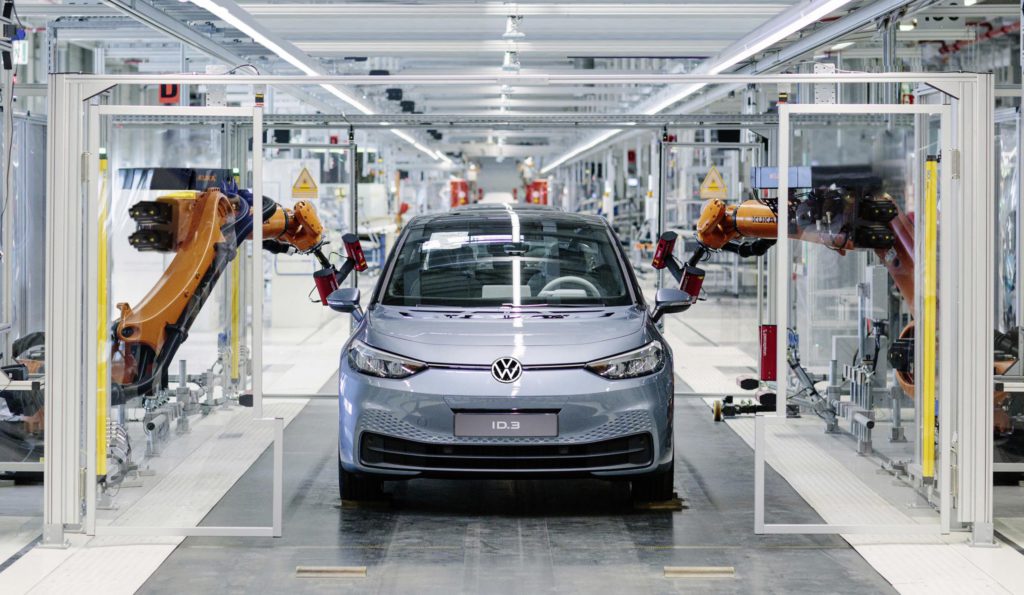Severe job cuts looming as Germany moves to EV production
14 January 2020

14 January 2020
Germany’s automotive industry could suffer a serious number of job losses over the next decade as the country shifts to electric vehicles (EVs).
More than 410,000 jobs could be at threat in a worst-case scenario, as carmakers start to rely on imports to meet EV sales targets. This would represent a 1% decrease in the workforce, according to a new National Platform on Future Mobility (NPM) report, a government-sanctioned document.
Difficult times
With strict CO2 limits to meet by 2030 and the majority of EV technology, including batteries, manufactured in Asia, carmakers are forced to rely on imports rather than building the components in their factories, as the manufacturing of these in Europe is slow to establish. As the demand for EVs increases, production of internal combustion engines will slow, meaning a number of workers will find their skills redundant.
The rapid shift away from the combustion engine, spurred by increasingly stringent EU emissions regulations, will be ′accompanied by a profound change in terms of value creation’, warns the study, which included executives from carmakers as well as suppliers such as Bosch.
′If we want to maintain industrial value creation and jobs in the local automotive industry, we will need the entire value chain to be here,’ said Jörg Hofmann, chairman of Germany’s IG Metall union and head of the NPM working group.
Pressure mounts
Germany’s Government wants the country’s carmakers to produce up to 10 million battery-powered vehicles by the end of the decade. However, pure electric cars still account for just under 2% of all new registrations in Germany. With European CO2 targets threatening large fines by the end of next year, this is a difficult time for the country’s industry.
The effects of a switch to EV technology has already seen more than 50,000 jobs cut across different manufacturers. Daimler is to cut at least 10,000 jobs worldwide as it looks to invest further in electric vehicles, with manager positions also streamlined as it looks to divert funds. Audi is also to cut 9,500 jobs by 2024 as it looks to free up money to invest in the development of EVs.
Volkswagen too, has warned over the need to cut jobs as it shifts focus to EVs. In March 2019, Group CEO Herbert Diess said: ′The reality is that building an electric car involves some 30% less effort than one powered by an internal combustion engine. That means we will need to make job cuts, and achieving this purely through fluctuation and partial retirement will be difficult.”
The report also predicts that the assembly of electric vehicles, which contain far fewer components, will become more automated and require less human resources than the production of petrol or diesel models. It adds that jobs will also be lost in mechanical and automotive engineering, technical development and design, and metal production.